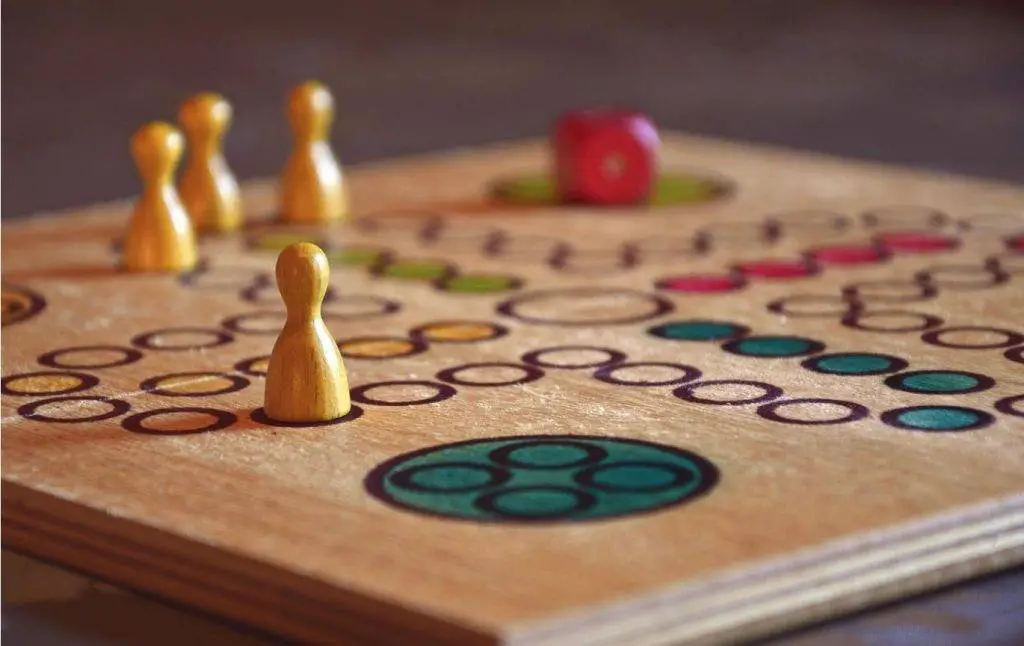Board games have long been a source of entertainment for families, offering fun, bonding, and friendly competition. However, beyond just a way to pass the time, board games can also serve as valuable tools for teaching children essential life skills. Whether it’s enhancing their cognitive abilities or learning how to navigate social interactions, board games provide a rich environment for growth and development. In this blog post, we’ll explore how board games can impart crucial life skills that benefit children both in the present and the future.

Enhancing Critical Thinking and Problem-Solving Skills
Board games are an excellent way to boost a child’s critical thinking and problem-solving abilities from a young age. Many games require players to plan, evaluate different strategies, and make decisions based on logical reasoning. For instance, educational board games for 5-year-olds, like Count Your Chickens or The Sneaky, Snacky Squirrel, encourage children to think critically while solving simple problems, such as counting or matching colors. These games introduce young players to the concepts of strategy and foresight in a fun, engaging way. As they navigate these games, children learn to analyze situations, assess possible outcomes, and make decisions that will help them win—valuable skills they can apply to academic challenges and real-life situations later on.
Building Numeracy and Literacy Skills
Many board games incorporate elements of numeracy and literacy, offering children an engaging way to practice math and reading without the pressure of formal learning. Games like Monopoly or Yahtzee require players to count money, add scores, or manage resources, improving their arithmetic skills. Meanwhile, word-based games like Scrabble or Boggle help kids enhance their vocabulary and spelling.
Through these playful activities, children gain a deeper understanding of numbers and words, building foundational skills in a fun and relaxed environment. This informal learning can reinforce concepts taught in school and encourage a positive attitude toward learning, as kids see that education doesn’t have to be restricted to the classroom.
Developing Patience and Emotional Regulation
Board games also teach children the importance of patience and emotional regulation. Many games can take time to complete, requiring players to wait their turn and anticipate the moves of others. This waiting period can be a great opportunity for kids to practice patience, learning that success often comes to those who are willing to stay calm and think before acting.
Additionally, board games inherently come with wins and losses. Children quickly learn that they won’t win every time, and dealing with losses gracefully is an important life lesson. When kids experience defeat in a controlled, playful setting, they develop the emotional resilience to handle disappointment and frustration. By learning how to manage their emotions during gameplay, they build emotional regulation skills that can help them navigate the ups and downs of life with a level head.
Fostering Teamwork and Collaboration
Many board games require teamwork and collaboration, teaching kids how to work together towards a common goal. Games like Pandemic or Forbidden Island rely on group strategy and cooperation to succeed, encouraging players to communicate and share ideas effectively. This fosters a sense of unity and highlights the importance of working well with others.
Children who play these cooperative games learn the value of listening to others, contributing their ideas, and compromising when necessary. These teamwork skills are essential for success in school, sports, and eventually, the workplace. Board games provide a fun and engaging way to build these interpersonal skills while also helping children recognize that success often requires collaboration, not just individual effort.
Boosting Communication and Social Skills
Board games are an excellent way to improve children’s communication and social skills. Many games require players to express their thoughts, explain their strategies, or negotiate with others. Games like Charades or Pictionary rely heavily on communication, encouraging kids to articulate their ideas clearly and effectively.
In addition to verbal communication, board games teach kids non-verbal cues like body language and tone of voice. They learn how to read social situations, interpret the feelings of others, and respond appropriately—all of which are vital components of emotional intelligence. By regularly engaging in board games, children develop strong communication skills that help them interact confidently and effectively in various social settings.
Encouraging Creative Thinking
Many board games spark creativity and imagination in children. Games like Dixit or Codenames encourage kids to think outside the box, come up with unique solutions, or use abstract thinking to solve problems. This creative thinking isn’t just about fun; it helps children develop the ability to approach challenges from different angles and find innovative solutions in everyday life.
Creative thinking is a crucial skill in the modern world, where adaptability and innovation are highly valued. By fostering creativity through play, board games help kids become more resourceful and imaginative thinkers, traits that will benefit them in everything from academic pursuits to career paths.

Board games are far more than just a source of entertainment for kids; they are powerful tools for teaching essential life skills. From critical thinking and problem-solving to emotional regulation and teamwork, the lessons learned through gameplay are invaluable. As parents, educators, or caregivers, incorporating board games into a child’s routine can be a fun and effective way to help them develop a wide range of skills that will serve them well throughout their lives. Whether it’s learning how to collaborate with others, manage emotions, or think creatively, board games provide a playful yet meaningful way for kids to grow into well-rounded individuals.











